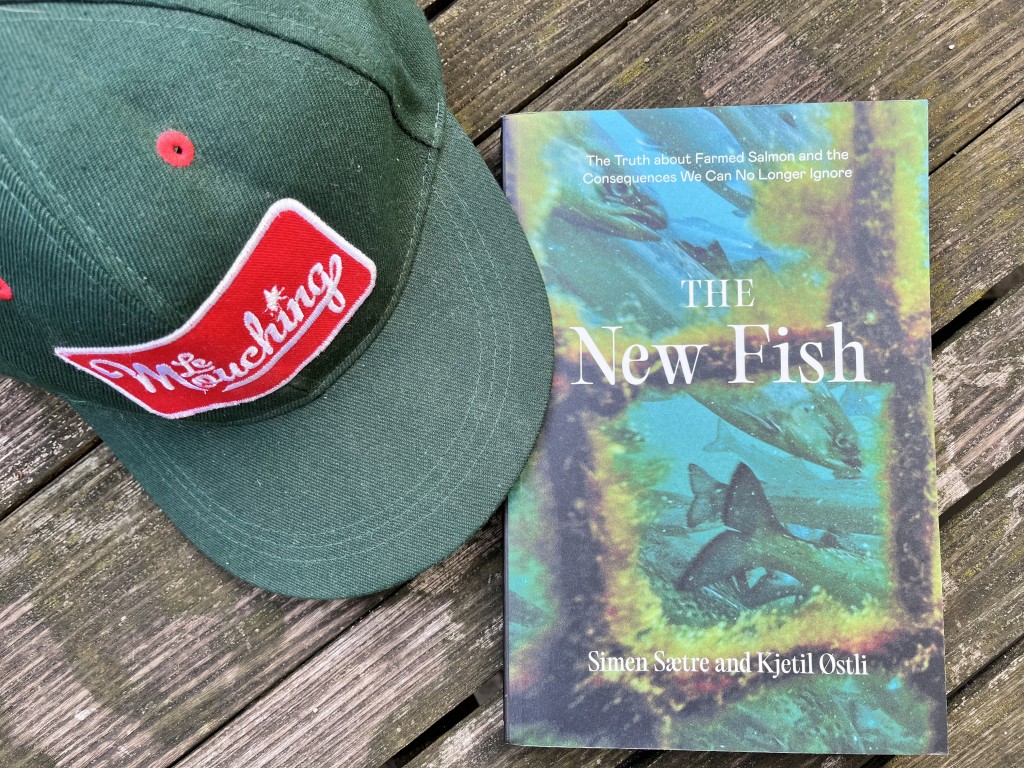We love Rosalia and we loved Björk in the ’90s, and since we hate salmon farms, this commitment got us excited! Suck it, salmon farmers, we’re coming after you!
As you can see, the whole world is fighting against industrial salmon farming, while the other side loves to eat cheap salmon… and there’s not much in between. We pass restrictive laws against factory farms, the farmers earn so much dough that they have no intention of giving up, and above all, certain countries pocket the taxes and rub their hands! Are we putting too much pressure on Europe? The farms are moving to Chile, where the laws are more tolerant for these big polluters. In short, you can already refuse to eat farmed salmon (adios factory sushi) and feel better about it! There are no small battles.
And Rosalia’s always made great collabs, so we can’t wait for the end of October!
Little letter from Björk, the whole song will be released at the end of the month.
i’m offering a song that rosalía and i sang together
profits go to the fight against fish farming in Iceland
book to be released in october
the people of the seyðisfjörður fjord have risen up and protested against fish farming there
we’d like to donate sales of the song to help pay their legal fees
and we hope it will serve as an example to others.
Iceland has the largest unspoilt natural area in Europe.
and even today, its sheep roam freely in the mountains in summer
fish swim freely in its lakes, rivers and fjords.
So when Icelandic and Norwegian businessmen started buying up fish farms in most of our fjords, the shock was great and the population rose up,
It was a big shock and the main topic of this summer,
We don’t understand how they’ve been able to do this for a decade without any regulation stopping them.
This has already had devastating effects on the flora and fauna, and the farmed fish are suffering appalling health conditions; since many of them have escaped, they have started to change the DNA of the Icelandic salmon in the opposite direction.
which could lead to its extinction.
It is still possible to save the last wild salmon in the North.
Our group would like to challenge these businessmen to retract their farms!
We would also like to contribute to the development and implementation of strict regulations in Iceland’s legal system to protect nature.
the majority of the nation already agrees with us
The aim of this event is to incorporate the will of the people into our system of rules.
Björk
Since we are nice guys at Le Mouching, we want to share our favorit song from Rosalia, Hentai.We also recommend reading The New Fish by Simen Sætre and Kjetil Østli, published by Patagonia, which takes an acerbic and accurate look at salmon farming and the ecological disaster it causes! Ideal for 1/ Perfecting your English 2/ Fighting fish farms 3/ Supporting the fight against salmon farms 4/ Giving at Christmas!
In the early 1970s, a group of scientists sought solutions to increase the food available for the world’s growing population. They turned to the sea. After sampling the genes of various salmon from 41 rivers in Norway and Sweden, they designed a new, fatter and faster-growing salmon. This innovation, considered extraordinary, marked the beginning of a new industry: salmon farming.This industry spread from the coasts of Norway to Scotland, Canada, Australia, Ireland, Chile, Iceland, the Faroe Islands and the USA. Sales soared, jobs were created and a new food, farmed salmon, spread around the world. People everywhere bought and enjoyed this abundantly available fish: grilled, poached, roasted, in sushi or sashimi. People were grateful for this delicious, inexpensive protein.But at what price?
We now know that unforeseen consequences have arisen: some of these fish have escaped, competing with other fish in the sea for food. The new fish have spread diseases, salmon lice have multiplied and the wild salmon population has dwindled.
In an award-winning five-year investigation, authors Simen Sætre and Kjetil Østli take an in-depth look at Norway’s role in the global salmon industry and provide, for the first time, a comprehensive assessment of the damaging effects of salmon farming. From lice to runaways, from the concentration of cage waste in the fjords through which wild salmon pass on their way to their native streams, to the fact that salmon farming causes a net reduction in protein from the ocean, the results are not brilliant. Recent victories, such as the ban on net-farming in Washington State waters, indicate that people are beginning to realize the environmental cost of industrialized fish.
It seems that we keep making the same mistakes until we understand them. The New Fish blends nature writing from Norwegian fjords, the Canadian coastline, Icelandic landscapes and the far south of Chile, character-driven literary journalism and classic investigative journalism. The authors begin with this question: what happens when you create a new animal and place it in the sea? This book will give you the answer.
Patagonia.

 Français
Français
